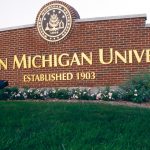Scholarship: Fully-funded
Degree: Bachelor, Master, Ph.D
Nationality: International Students
Location: USA
Application deadlines: Open
Scholarship Description:
Stony Brook University (SBU) is a top public research university located on Long Island, New York, known for its vibrant academic environment and strong interdisciplinary collaboration opportunities. As a member of the Association of American Universities (AAU), SBU is globally recognized for its excellence in research, innovation, and education.
The university has a rich legacy, with notable alumni such as Professor Yang Chen-Ning, a Nobel Laureate in Physics, who taught at SBU for 37 years and significantly contributed to its reputation in China. Located near New York City, SBU offers access to world-class research institutions, the biotechnology industry, and abundant research funding, closely collaborating with the Cold Spring Harbor Laboratory (CSHL). The Renaissance School of Medicine at SBU is the best public medical school in New York State. The scenic campus provides an excellent environment for living and research, complemented by easy access to the cultural and culinary offerings of New York City.
We welcome you to join Stony Brook University and contribute to groundbreaking scientific advancements and innovative research! Dr. Qiu-Hua Yang, currently a postdoc at the Medical College of Georgia, will join SBU as a faculty member and establish an independent lab starting July 1, 2025.
Dr. Yang graduated with a Bachelor’s degree from Yunnan University in 2013 and earned his Ph.D. from Peking University in 2019. He was a visiting scholar at the Medical College of Georgia in 2015 and continued there as a postdoc under Professor Yuqing Huo after completing his doctorate.
Dr. Yang has published multiple high-quality papers as the first or co-first author in journals such as Science Translational Medicine, Nature Communications, Cardiovascular Research, Pharmacological Research, and British Journal of Pharmacology. Some of his work has been featured on the cover of Science Translational Medicine and highlighted by both the Medical College of Georgia and the National Eye Institute (NEI) of the National Institutes of Health (NIH).
As a co-author, he has contributed to 31 articles in journals including Circulation, Journal of Experimental Medicine, European Heart Journal, PNAS, Hepatology, and EMBO Molecular Medicine, with a total of 1,319 citations.
Dr. Yang has received the American Heart Association (AHA) postdoctoral fellowship and the NIH K99/R00 grant, designed to support postdoctoral researchers transitioning to independent investigators. He has also been awarded funding from the Association for Research in Vision and Ophthalmology (ARVO) and recognized with titles such as “Outstanding Early Postdoc” and “Outstanding Late Postdoc” by the Cardiovascular Center at the Medical College of Georgia.
Additionally, he serves as a peer reviewer for academic journals such as Frontiers in Pharmacology, Frontiers in Immunology, Aging, and Cardiovascular Research, and has taught doctoral courses during his postdoc.
As a newly transitioned young mentor, Dr. Yang is passionate about research, communicative, and attuned to the needs of lab members, with a strong motivation to help train the next generation of researchers.
Available Subjects:
- This lab focuses on investigating the roles of metabolic and inflammatory mechanisms in retinal degenerative diseases, age-related pathologies, and ocular fibrosis.
- We utilize cutting-edge techniques such as spatial genomics, spatial metabolomics, single-cell sequencing, optical/photoacoustic imaging, and cell-cell interaction studies.
Eligibility criteria:
- A Ph.D. in cell biology, molecular biology, or a related field, obtained or expected (thesis completed); recent graduates are preferred. Must have published articles as the first author in peer-reviewed journals.
- Strong enthusiasm for research, a rigorous scientific attitude, logical thinking, and independence.
- Preference for candidates with experience in mouse handling and cell culture.
- Good communication skills and proficiency in English writing.
Application Procedure:
Please have applicants send their English CV and cover letter to Dr. Qiu-Hua Yang at [email protected], with a copy to [email protected]. Additionally, include contact information for three referees. The email subject should read “Postdoc application – Name.”
The lab strictly maintains the confidentiality of application materials, and qualified candidates will be invited for an interview upon receipt of the three recommendation letters. This recruitment information is valid for an extended period, and we look forward to welcoming like-minded individuals!

